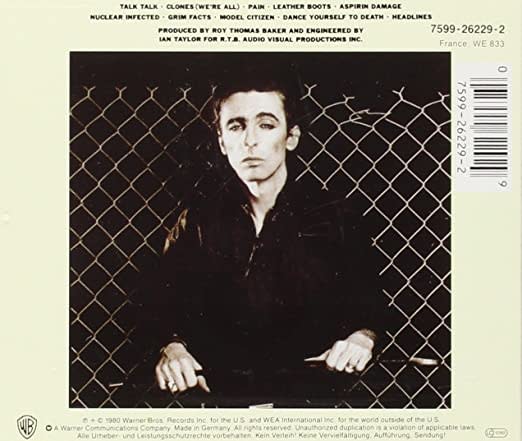Alice Cooper talks early-'80s 'blackout albums': 'The coke had done its damage'
Alice Cooper is one of the all-time most resilient rock stars, surviving not only a serious battle with addiction but myriad changes in the musical landscape. Even when the shock-rocker went new wave for a while, starting with the 1980 album Flush the Fashion (which was billed to “Alice Cooper 80”), he found success. The album spawned the Gary Numan-esque crossover hit “Clones (We’re All),” which cracked the Billboard Top 40 forty years ago this week and was even covered by the Smashing Pumpkins in 1996.
Cooper acknowledges that the album was a risk, and that not all of his rock-purist fans appreciated the sonic experiment, but he tells Yahoo Entertainment, “Sometimes you have to bring them along. You have to just say, ‘Look, we're going here this time.’” And he stands by the record, which he thinks stayed true to the classic Alice aesthetic — despite the shift not only in his sound but in his image, when he pretty much started dressing like an outer-space version of New Romantic swashbuckler Adam Ant.
“I didn't want to get the guitars out of it. I wanted it to be a guitar-rock album as always, but it was the first time that I got a heavy dose of synthesizer,” Cooper recalls of Flush the Fashion. “And it was because of Roy Thomas Baker, who produced the album — he produced Queen and the Cars and everybody like that. I said, ‘I would like to do something that sounds modern, but it doesn't lose Alice. You know, I want to keep Alice in there.’ And he says, ‘Well, Alice could be sci-fi. Can't he?’ And I went, ‘Absolutely. Let's go sci-fi on this.’
“So, a lot of the songs in there, especially ‘Clones,’ were very sci-fi, and I thought that was not a bad little offshoot for Alice. … I heard the album and I loved what [Baker] did with it. I liked the picture on the back with the short hair. It was very underground.”

At the time, Cooper was known for his excess and exploits, but he says Baker totally had him beat in the debauchery department. “If they ever make a movie about Nero or Caligula, Roy Thomas Baker at that period would have been the guy, because at that time he was the most decadent human being I ever met in my life,” Cooper chuckles. “I'd get calls like, ‘Alice, darling, I'll be a little late. I seem to be handcuffed to my bed. I picked up a couple of chippies last night and they stole my wallet. Is my Rolls Royce at your house? Because I can't find it.’ I was not the insane one in that! Roy Thomas Baker was by far the most insane character that I'd worked with.”
However, the most insane, Caligulan era in Cooper’s life came soon after Flush the Fashion, while making the similarly polarizing trilogy Special Forces (1981), Zipper Catches Skin (1982), and DaDa (1983), which he now calls his “blackout albums.”

“I was basically writing these trippy little songs that now I listen to, and I don't remember writing them. I don't remember producing them. I don't remember touring with them. I might have been involved in the cocaine blizzard that was going on in Los Angeles at the time,” the now-sober 72-year-old confesses.
“I really don't remember touring with them, honestly. And I look at pictures and I go, ‘Wow! What did I become?’ There were shots of me, on the Special Forces album especially, where the coke had done its damage. I was always able to go onstage and really entertain the audience — that was no problem — but I did one of those big talk shows, and I was terrifying-looking. It scared me!”
Cooper describes his emaciated appearance at the time as “soldier of fortune that's on meth and he's capable of killing anybody. That's what [the early-‘80s Alice character] looked like.”
Cooper got clean for good in the mid-‘80s, and now that he’s able to revisit his “blackout albums” with a clear mind, he is proud of those largely forgotten records as well. “Now I listen to them and I go, ‘Wow! That song is so good!’” he says. “I am almost tempted to go back into those albums and reproduce some of those songs, because some of the songs were so clever that I hate to see them just disappear.”
Check out Alice Cooper’s extended Yahoo Entertainment interview, in which he discusses his new podcast “Alice Cooper’s Vintage Vault,” his early days on Frank Zappa’s Straight Records label, his many film and TV roles, his new coronavirus-inspired anthem “Don’t Give Up,” and much, much more:
Read more from Yahoo Entertainment:
Slash talks addiction, recovery: 'I was fortunate. I didn't die, and I didn't go to prison'
Get back to me: The totally new wave legacy of ‘Square Pegs’
Follow Lyndsey on Facebook, Twitter, Instagram, Amazon, and Spotify.



